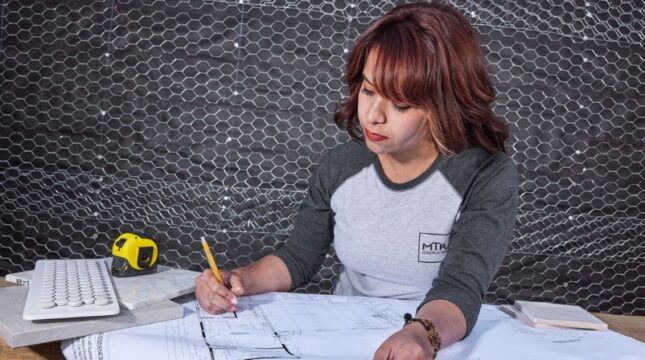Small Business Administration (SBA) certifications
The U.S. government spends more than $650 billion on products and services each year, making it the largest consumer in the world. And they set aside a certain amount of money to spend on products and services from businesses with specific certifications.
If you have one of the certifications listed below, you’ll get an opportunity to bid on contracts that other small businesses don’t have access to.
Women-owned small business certifications
The U.S. government awards at least 5% of its contracts to certified women-owned small businesses every year.
If you’re the owner or co-owner of a woman business enterprise, you may qualify for one of two types of certifications:
- Small Business Administration’s Women-Owned Small Business Certification (WOSB) or
- Economically Disadvantaged Women-Owned Small Business Certification (EDWOSB).
To qualify for both certifications, your business must be:
- A small business according to the SBA’s standards.
- At least 51% owned and controlled by a woman who is a U.S. citizen.
- A woman must manage day-to-day operations and make long-term decisions.
To earn an EDWOSB designation, your business must meet the above WOSB Federal Contract program requirements and be owned and controlled by one or more women each with:
- Personal net worth of less than $850,000.
- $400,000 or less in adjusted gross income averaged over the previous three years.
- $6.5 million or less in personal assets.
To qualify and remain certified for an SBA program, you must complete an attestation form every year. Every three years, an SBA representative or third party will conduct a more in-depth review of your business to make sure it still meets the certification requirements. You must also update your SAM.gov profile annually to ensure your Dynamic Small Business Search (DSBS) profile remains active.
Historically underutilized business zones (HUBZone) program
The Historically Underutilized Business (HUB) Zone program targets small businesses in urban and rural areas with high unemployment rates and low household incomes.
HUBZone-certified small businesses get preferential access to certain contracts, plus a 10% price evaluation preference. So, if you bid up to 10% more than other qualified businesses, you can still win the contract.
To qualify for a HUBZone Program certification:
- Your headquarters must be in a designated HUBZone.
- Your business must be at least 51% owned and controlled by U.S. citizens.
- At least 35% of your employees must live in a HUBZone.
- Your business is classified as an SBA-defined small business.
After receiving your HUBZone certification, you must confirm that your business still meets the program requirements yearly. And you must undergo a more extensive review of your business’s eligibility every three years as part of the certification process.
Minority-owned small business certification 8(a)
The 8a Business Development Program aims to assist people who have historically been at an economic disadvantage due to racial, ethnic and cultural biases.
If your small business is at least 51% owned and controlled by socially and economically disadvantaged people as defined by the SBA, you may qualify as a minority business enterprise and be eligible for certification.
To qualify, you must:
- Have personal net worth under $250,000 cash (excluding personal residence and business), checking/savings accounts, real estate, IRAs, stocks, bonds and vehicles.
- Be the highest-paid person in the company with an annual salary that should be reasonable in proportion to the annual gross revenue of the firm.
- Show total current market value of all assets to be under $4 million.
- Have an average two-year adjusted gross income (AGI) of less than $200,000.
- Be a small business according to the SBA standards.
- Have full control of the company.
- Own 51% of the company.
- Provide two most recent tax returns.
Businesses that earn this designation may partner with other certified minority-owned businesses to bid on larger contracts they may not otherwise be able to complete.
Certification is good for nine years, and you don’t need to re-certify annually as you do for some of the other designations on this list.
Veteran-owned small business certification
If you’re one of the 16.5 million vets in the U.S. today, you may be eligible for contracts the federal government sets aside for veteran-owned businesses each year.
You may qualify for one of two types of certifications:
- Veteran-Owned Small Businesses (VOSBs) certification or
- Service-Disabled Veteran-Owned Small Businesses (SDVOSBs) certification.
To be eligible for these certifications:
- Your business must be is 51% or more owned and controlled by a veteran and U.S. citizen.
- You must have a small business according to the SBA standards.
- You must be registered as a small business on SAM.gov.
Additionally, for the SDVOSB certification, you must
- Have no less than 51% of the business owned and controlled by one or more veterans rated as service-disabled by the VA.
Fully and permanently incapacitated veteran business owners unable to handle daily operations may qualify for the certification if their spouse or appointed, permanent caregiver assists in management.
SBA veteran-owned certification lets your company compete for VA and other sole-source and set-aside contracts. Each year, the VA reserves 7% of contracts for eligible VOSBs and SDVOSBs. Certified SDVOSBs receive at least 5% of federal contracting funds annually. Contracts are also available through other socioeconomic programs.
Small disadvantaged business certification
The Small Disadvantaged Business (SDB) Certification allows businesses to self-represent as small disadvantaged businesses for federal prime contracts and subcontracts. The Biden-Harris Administration increased emphasis on SDBs for designated federal contract procurement in 2021.
To self-represent, businesses must be:
- 51% owned and controlled by one or more disadvantaged individuals.
- Socially disadvantaged and economically disadvantaged by SBA standards.
- A small business according to the SBA standards.
To register, you must sign up at SAM.gov. This certification does not expire unless the business no longer meets requirements.
Organizational small business certifications
Government certifications are just one type of certification that can help move your business forward. You can also obtain certifications through private organizations dedicated to supporting specific groups of people.
Minority Business Entity (MBE) certification
The National Minority Supplier Development Council’s (NMSDC) mission is to level the playing field for minority-owned businesses by creating equal opportunities for wealth-building and socioeconomic equality.
The NMSDC defines a minority as someone who is at least 25%:
- Asian-Indian
- Asian-Pacific
- Black
- Hispanic
- Native American
When you get certified as a Minority Business Entity (MBE), you gain access to education, training, networking opportunities and contracts that aren’t accessible to the general public.
You must meet the following requirements to qualify for certification.
- You must be a U.S. citizen.
- Your business must be at least 51% minority-owned, managed and operated.
- Your business must be physically located in the United States or one of its territories.
LGBTQ-Owned Business Enterprise certification
Issued by the National LGBT Chamber of Commerce (NGLCC), businesses with the LGBTBE certification enjoy unique opportunities to grow their business.
The NGLCC connects certified businesses with professionals actively looking to work with LGBT-owned companies. The organization also provides workshops, mentorship and leadership training.
To qualify for certification, your business must be:
- At least 51% owned, operated, managed and controlled by one or more LGBT person.
- Owned by a U.S. citizen.
- Located in the United States.
- Legally formed in the United States.
- Independent of non-LGBT business enterprises.
Industry-specific certification programs
Depending on your business type, you may need to obtain specific certifications before you begin working. For example, plumbers, electricians, HVAC operators and other skilled tradespeople must be certified to work legally in many states.
Other professionals, like auto mechanics and fitness instructors, don’t typically need a certification. But that doesn’t mean being ASE-certified or getting your NASM certification won’t help you attract more clients and grow your business.
Many industries offer voluntary certifications that might be worth checking out.
Local small business certifications
Many states, counties and cities offer certifications to qualifying small businesses. Depending on where you live, you may first need to receive certification from the SBA to secure a local certification.






